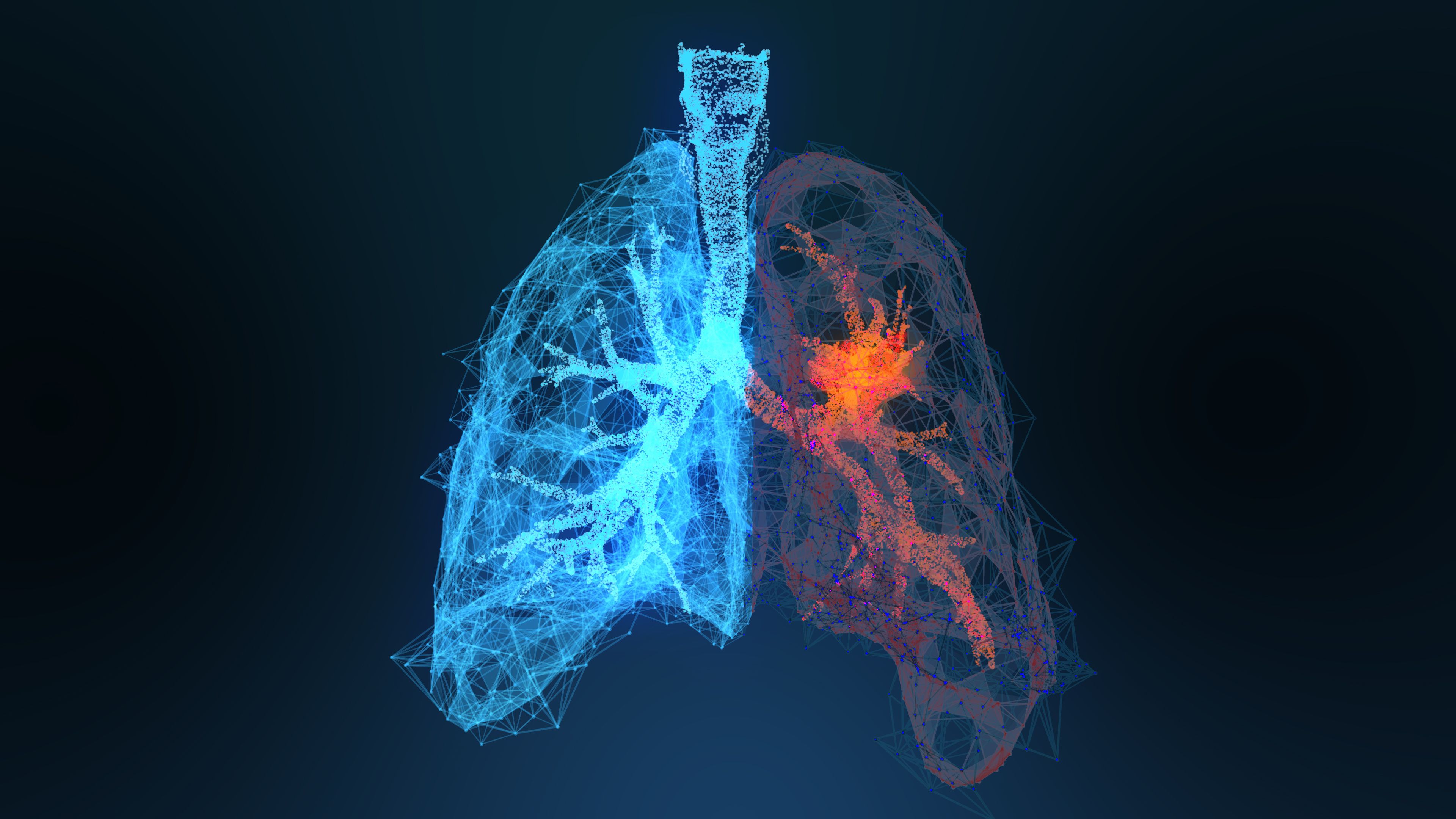Long-term Data Show Efficacy of Amivantamab-vmjw Combination for Patients With Mutated Advanced Non-Small Cell Lung Cancer
In data presented at the 2023 American Society of Clinical Oncology (ASCO) Annual Meeting, amivantamab-vmjw plus lazertinib demonstrated promise as a first-line treatment for patients with advanced EGFR-mutated non-small cell lung cancer.
The combination of amivantamab-vmjw (Rybrevant; Janssen) plus lazertinib (Leclaza; Yuhan and Janssen Biotech) shows promise as an effective first-line treatment for patients with advanced epidermal growth factor receptor (EGFR)-mutated non-small cell lung cancer (NSCLC), according to data presented at the 2023 American Society of Clinical Oncology (ASCO) Annual Meeting.
Credit: appledesign - stock.adobe.com

The combination treatment appears to be associated with sustained antitumor activity, according to findings from the ongoing CHRYSALIS (NCT02609776) study. At a median follow-up of 33.6 months, duration of response (DOR), median progression-free survival (PFS), and overall survival (OS) were not reached; however, estimated rates of PFS at years 1, 2, and 3 are 85%, 65%, and 51%, respectively.
“Advanced NSCLC and EGFR-mutated lung cancer has a 5-year survival rate of less than 20%, underscoring an urgent need for more targeted treatment options, especially in earlier lines of therapy,” said presenting author Se-Hoon Lee, MD, PhD, professor of medicine at the Samsung Medical Center and Sungkyunkwan University School of Medicine, in a press release.
CHRYSALIS (NCT02609776) is a 2-part, phase 1, open-label, multi-center, and first-in-human study evaluating the safety, pharmacokinetics, and preliminary efficacy of monotherapy amivantamab, an EGFR inhibitor, or in combination with lazertinib, a third-generation EGFR tyrosine kinase inhibitor (TKI). The study includes a cohort of 780 treatment-naïve patients with NSCLC who have an EGFR exon 19 deletion (ex19del) or L858R mutation. The first part of the study evaluated amivantamab monotherapy with combination dose escalations, whereas part 2 evaluated amivantamab monotherapy with combination dose expansions.
Investigators are also presenting positive data on patients in Cohort D of the CHRYSALIS-2 (NCT04077463). The open-label study is evaluating the safety and pharmacokinetics of lazertinib monotherapy, or in combination with amivantamab, in patients who are chemotherapy-naïve, have EGFR ex19del or L858R-mutated NSCLC, and experienced disease progression during or after treatment with osimertinib ( Tagrisso; AstraZeneca).
Additionally, investigators will present data from PALOMA (NCT04606381), an ongoing study that is evaluating the feasibility of subcutaneous administration of amivantamab with a goal of finding a dose, dose regimen, and formulation.
No new safety signals were reported in the trial. The most common adverse events associated with amivantamab were dermatologic, including rash (74%), pruritus, and dry skin. Other associated toxicities include paronychia, musculoskeletal pain, dyspnea, nausea, fatigue, edema, stomatitis, cough, constipation, and vomiting. Common higher-grade toxicities include decreased lymphocytes, albumin, phosphate, potassium, and sodium, and increased levels of alkaline phosphatase, glucose, and gamma-glutamyl transferase.
Lung cancer is among the most common cancers worldwide, and NSCLC may account for 85% of all lung cancer cases. Subtypes of NSCLC include adenocarcinoma, squamous cell carcinoma, and large cell carcinoma. Alterations of EGFR, which naturally supports cell growth and division, drive up to 15% of NSCLC adenocarcinoma. Patients with advanced NSCLC and EGFR mutations who are treated with EGFR TKIs have a 5-year survival rate of less than 20%.
In May 2021, amivantamab received accelerated approval from the FDA to treat adult patients with locally advanced or metastatic NSCLC with EGFR exon 20 insertion mutations. It is being studied in multiple clinical trials for NSCLC.
“These long-term data for amivantamab and lazertinib introduce the potential for this combination therapy to be used as first-line treatment for this patient population,” Lee said.
Reference
Janssen Pharmaceutical Companies. New Long-Term Data from the CHRYSALIS Study Show Median Progression-Free Survival Not Reached after 33.6 Months of Follow-Up with First-Line Use of RYBREVANT® (amivantamab-vmjw) and Lazertinib Combination Therapy in Patients with Treatment-Naïve EGFR-Mutated Advanced Non-Small Cell Lung Cancer. News Release. June 4, 2023. Accessed on June 5, 2023. https://www.jnj.com/new-long-term-data-from-the-chrysalis-study-show-median-progression-free-survival-not-reached-after-33-6-months-of-follow-up-with-first-line-use-of-rybrevant-amivantamab-vmjw-and-lazertinib-combination-therapy-in-patients-with-treatment-naive-egfr-mutated-advanced-non-small-cell-lung-cancer
